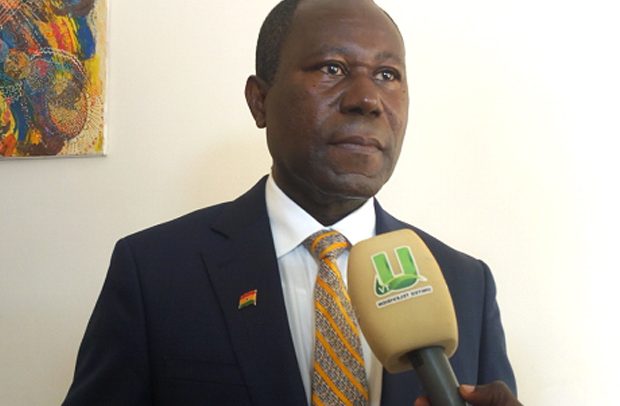Joseph Boahen Aidoo
The Chief Executive of the Ghana Cocoa Board (COCOBOD), Joseph Boahen Aidoo, has urged European chocolate processing companies and international civil society groups campaigning for the protection of forests, to disabuse their minds of their long-held perception that cocoa farming results in deforestation.
Deforestation has been a major concern of the international community and cocoa farming has often been attacked as a cause.
Some European companies have in the past threatened to boycott cocoa produced in Ghana because they have been planted in reserved forest areas.
Addressing the General Assembly for Swiss chocolate producers in Zurich, Mr. Aidoo stated categorically that he did not subscribe to the thinking that cocoa farming causes deforestation.
He explained that though cocoa have been planted on lands in Ghana which in the past were reserved forests, the activities of lumbering companies reduced the forest before cocoa farmers converting the depleted vegetation into cocoa farms.
He referenced an academic research conducted into cocoa migration in Ghana and the history of the cocoa industry which found that farmers were not responsible for the tree felling and vegetation clearing activities that have caused the depletion of Ghana’s forest reserves over the years.
Loggers working for lumbering companies who sell the timber to Europe and the Americas, are the ones who enter those reserves and subdue the forest, Mr. Aidoo pointed out.
“So, in effect, it is not cocoa farmers, who cause deforestation,” he stressed.
“But now the general idea is that cocoa is causing deforestation. I beg to differ,” he said.
“If cocoa can be planted to restore some of these lands, I believe it adds up to the forest stock and that is a good thing.”
In Ghana cocoa is often intercropped with other plants, the COCOBOD boss told the gathering while elaborating on the unique forest friendly cocoa farming practices that many farmers in the West African nation have adopted for many years.
It is common to see cocoa crops planted among trees and along with food crops.
Monocropping as practised in places such as Ecuador, is not the dominant practice in Ghana.
“Cocoa is a forest plant. In Ghana, it is intercropped with other forest trees; timber trees to provide permanent shade,” he said.
And some of these forest trees grow to the height of over 45 meters with cocoa crops as middle layer plants.
“It is also intercropped with food crops. We have plantains. We have bananas and we have cocoyam.”
“These are staple foods in Ghana and they are routinely cultivated under cocoa plants and cocoa thrives best when it exists with other plants,” he stated.
He went on to highlight the important contribution of cocoa plants as one of the natural means of reducing atmospheric carbon dioxide as it is well documented that cocoa plants absorb carbon dioxide from the atmosphere and deposit carbon into the soil.
BY DGN Online


